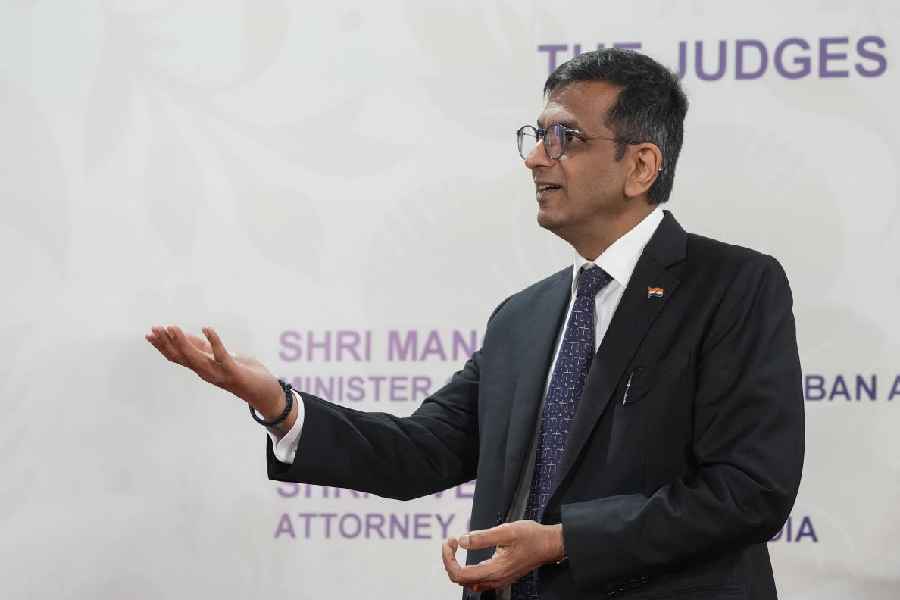The impact of the tenure of the former chief justice of India, D.Y. Chandrachud, on our lives as lawyers with disabilities was rich and personal. He demonstrated an unwavering commitment to advancing equality of opportunity and dignity for persons with disabilities.
The fundamental shift has been to pivot the focus on disability on the human rights model wherein PwDs are considered rights-holding individuals. Chandrachud’s vision of the statutory laws on disability was embedded in the fundamental right to dignity, equal opportunity, substantive equality, and barrier-free living. This articulation brought doctrinal clarity on retrograde precedents and policies ranging from examination guidelines, recruitment rules and eligibility-determination norms.
His judgments stressed that PwDs are not restricted to certain domains of work or society wherein they are acceptable while being excluded from others. The intrinsic conduct of an individual classified as disabled does not detract from his/her inherent dignity; therefore, it is incumbent upon the government to ensure that these individuals are afforded the same dignified existence as their non-disabled counterparts.
It is widely acknowledged that disability does not constitute a homogenous category; rather, the barriers faced and the necessary accommodations are inherently individualistic. In this context, the former CJI relied on the appointment of specialised institutions tasked with studying and providing insights on issues related to accessibility compliance. Furthermore, he emphasised the importance of engaging with disability studies scholarship, advocating for an exploration of these issues from multiple perspectives and identities and fostering active collaboration with domain experts and disability rights advocates to enrich the discourse and the effectiveness of the measures implemented.
One of the most invisible aspects of excluding PwDs are the attitudinal barriers that encompass adverse perceptions and attitudes harboured by individuals and society toward PwDs. These barriers transcend physical impediments and manifest as cognitive, emotional, and social hurdles that curtail opportunities, access, and equality for PwDs. Chandrachud underlined how attitudinal barriers perpetuate indirect discrimination in a myriad forms. He surpassed his judicial role to release the Handbook Concerning Persons with Disabilities that provides for the employment of correct and inclusive language by courts when dealing with PwDs.
The principle of ‘Nothing about us without us’ has emerged as a foundational doctrine in policy formulation, underscoring the necessity for inclusive representation. This principle was substantively endorsed by Chandrachud. Through a series of jurisprudential developments, he operationalised this doctrine while simultaneously debunking associated stereotypes. Notably, he overturned a precedent that barred individuals with visual disabilities exceeding 50% from entering the judicial service. In his comprehensive rulings, he articulated the principle of reasonable accommodation as a positive obligation of the State, asserting that it must actively facilitate the full participation of PwDs. Chandrachud also addressed the prevalent social barriers hindering PwDs from pursuing medical education. This historical exclusion has been based on the medical model of disability, which relies on an objective assessment of capacity that often fails to acknowledge the diverse potential of individuals with disabilities. Chandrachud’s judgments systematically dismantled this reductive perspective, thereby contributing to a broader understanding of disability and affirming the rights of PwDs in educational and occupational domains.
By establishing Accessibility Committees, publishing the disability sensitisation handbook and other key reforms like the Accessibility Helpdesk, the former CJI laid the groundwork for a more inclusive judicial system.
Prannv Dhawan is an advocate specialising in disability rights litigation and policy advocacy. Shashank Pandey is a lawyer and founder of Politics and Disability Forum










